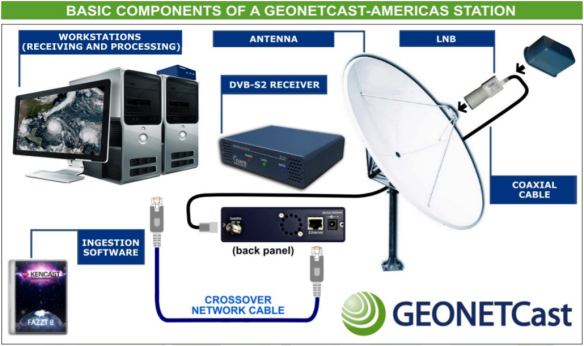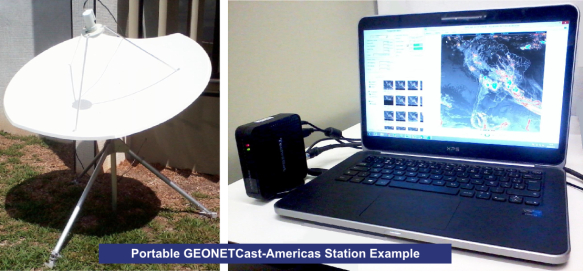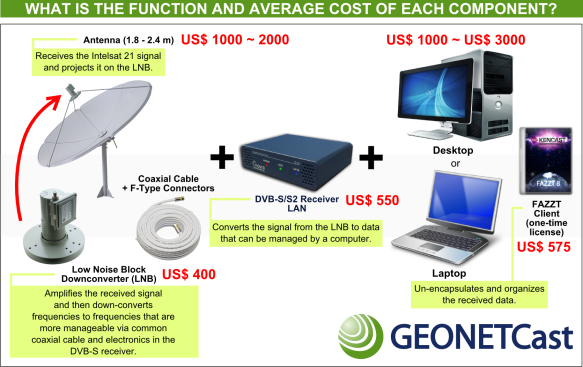GEONETCast Americas (GNC-A) is the Western Hemisphere component of GEONETCast, a near real time, global network of satellite-based data dissemination systems designed to distribute space-based, air-borne and in situ data, metadata and products to diverse communities.
Please find an introductory presentation about the system on this link (November 2021).
This user-driven, user-friendly and low-cost information dissemination service aims to provide global information as a basis for sound decision-making in a number of critical areas, including Biodiversity and Ecosystem Sustainability; Disaster Resilience; Energy and Mineral Resources Management; Food Security and Sustainable Agriculture; Infrastructure and Transportation Management; Public Health Surveillance; Sustainable Urban Development and Water Resources Management. Accessing and sharing such a range of vital data will yield societal benefits through improved human health and well-being, environment management and economic growth.

GEONETCast receiving technology is based on using widespread and off-the-shelf components allowing for widespread adoption of the service at low cost. The components for an entire receiving station can be purchased and installed for $5,000 – 10,000. A Turn-Key solution can be purchased by $30,000 – 40,000.
GEONETCast-Americas Receive Station Basic Components
In order to assembly a GEONETCast-Americas station you need basically five components:
- Antenna
- LNB
- DVB-S2 Receiver
- Ingestion Software (KenCast FAZZT Professional Client)
- Computer
Why GEONETCast-Americas?
While internet and other communications means exist, satellite broadcasts are inexpensive to operate and provide a method of communication removed from other terrestrial network limitations of periodic failures. The system is specially useful and efficient in providing access to environmental data in areas where the internet coverage is limited or inexistent. The system can be portable, and products can be disseminated on demand and with low latency, making it a valuable tool in the decision making process on severe environmental events. The system groups data from several providers in the same place, enables user friendly data management, historical data storage, and periodic dissemination of training materials, such as tutorials on how to manipulate and apply the disseminated products, making it a platform for capacity building in meteorology. It also presents a much lower cost in comparison to a conventional satellite direct readout station, making GNC an affordable option to share data from newer generations of satellites. Users may also request products from all over the world, and more interestingly, they may upload their own environmental products set to the system.
Several GEONETCast-Americas stations being installed








